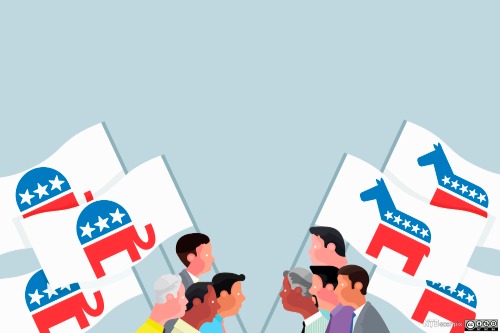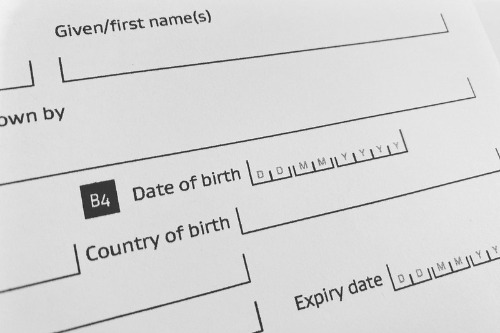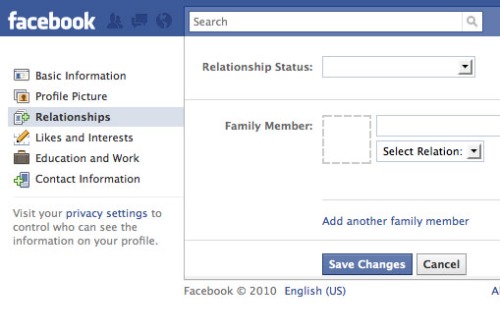1. Salaries and Personal Income

Talking about how much you make is practically taboo in the U.S., even among close friends. Many Americans see money as a deeply personal subject tied to self-worth and social status. Historically, salary secrecy has also benefited employers, making workers less likely to compare pay. That’s why you’ll rarely hear someone casually asking, “So, what’s your annual income?” at a party.
Interestingly, younger generations are beginning to push back on this silence, especially in industries with pay gaps. But for most people, the old etiquette still stands. Bringing up your paycheck can make others uncomfortable, either by making them feel inadequate or sparking envy. So, most Americans sidestep the topic entirely unless there’s a pressing reason.
2. Political Party Affiliation

Politics is one of those subjects Americans know can turn a friendly chat into an argument in seconds. Partisan divides are sharper now than they’ve been in decades, making it feel risky to ask, “Who did you vote for?” Even if two people agree on many issues, identifying with a political party can bring out stereotypes and assumptions. That’s enough to make people keep their leanings close to the vest in casual settings.
While some countries treat politics as a normal dinner conversation, Americans often save it for trusted circles. The fear is less about debate and more about damaging relationships. A single comment can quickly polarize the room, especially if alcohol is involved. That’s why this topic stays off most people’s small-talk list.
3. Religion and Personal Faith

Religion is another third-rail topic in American small talk, even though many people identify with a faith. It’s tied to deeply personal beliefs, family traditions, and sometimes controversial social issues. Bringing it up risks unintentionally offending someone or sparking a theological debate. For that reason, many Americans steer clear unless they know the other person shares their perspective.
Interestingly, even among religious Americans, there’s hesitancy to talk about faith outside formal settings like church. Religion in the U.S. is closely linked with identity, and casual discussions can feel invasive. The diversity of beliefs makes it harder to assume common ground. As a result, this remains a conversation starter most people avoid.
4. Age and Birth Year

Asking someone’s age, especially if they’re older, can come off as rude in the U.S. There’s a cultural emphasis on youth, and revealing one’s age can lead to assumptions about ability, attractiveness, or relevance. It’s not just vanity — in professional settings, age can influence perceptions of competence or future potential. That makes it a risky small-talk choice.
Even well-meaning curiosity can be misread as judgment. While some cultures see age as a sign of respect or wisdom, Americans often link it to personal privacy. People may feel they’re being subtly categorized the moment they answer. So, the question rarely pops up unless there’s a clear reason, like a birthday.
5. Weight and Body Size

Commenting on someone’s body — even if meant as a compliment — can be a minefield. Americans live in a culture hyper-aware of body image issues and eating disorders. A casual remark about weight can be interpreted as criticism, no matter the intent. Because of this, most people keep body size out of casual conversation.
There’s also a growing awareness of “body neutrality” and avoiding appearance-focused talk altogether. Weight can be tied to personal struggles, health issues, or self-esteem. Asking “Have you lost weight?” might unintentionally open emotional wounds. So, small talk usually sticks to safer ground.
6. Mental Health Struggles

While mental health discussions have become more open in recent years, many Americans still hesitate to bring it up in small talk. Stigma, even if lessening, still lingers. People fear being judged, pitied, or misunderstood. As a result, anxiety, depression, and therapy remain private topics for many.
That doesn’t mean Americans never talk about it — just that the conversation tends to happen in trusted spaces. Public disclosure can feel too vulnerable, especially with someone you just met. The uncertainty about how the other person will respond adds another layer of hesitation. So, in casual chats, mental health often stays under wraps.
7. Parenting Choices

Whether it’s breastfeeding vs. formula or strict vs. permissive discipline, parenting debates can get heated fast. Americans have strong opinions on what makes a “good” parent. Even innocent questions can come off as judgmental. That’s why many parents stick to safe updates about their kids instead of their parenting philosophy.
The pressure comes from a culture of “mom-shaming” and “dad-shaming,” where differences in approach can spark unsolicited advice. People often feel their choices are under a microscope. Small talk is supposed to be light, so diving into parenting style can feel too personal. Unless it’s a trusted friend, most people leave it alone.
8. Relationship Status Details

Asking someone why they’re single, when they’ll get married, or if they plan to have kids can make things awkward fast. In the U.S., there’s growing awareness that these questions assume everyone wants the same milestones. They can also unintentionally touch on sensitive issues like infertility or divorce. So, many Americans keep relationship talk vague unless the other person volunteers details.
There’s also a cultural push toward respecting different life paths. Not everyone follows the same timeline, and prying can feel intrusive. Even well-meaning curiosity can land badly if the person is in a rough patch. This makes it a risky small-talk topic, especially in mixed company.
9. Personal Debt

Credit card bills, student loans, and mortgages are a huge part of American life, but you won’t hear them discussed casually. Debt can carry stigma, even though it’s incredibly common. Talking about it risks making someone feel embarrassed or judged. That’s enough to keep it firmly off most people’s small-talk radar.
This avoidance also ties back to the broader discomfort with money talk. Americans are taught to separate financial struggles from public identity. Even mentioning debt numbers can feel like revealing a private vulnerability. So, while almost everyone has it, almost no one brings it up casually.
10. Health Diagnoses

Unless it’s something minor like a cold, many Americans avoid talking about personal health conditions in casual conversation. Chronic illnesses or diagnoses can feel too heavy for light chat. There’s also a concern about being seen differently or defined by the condition. That makes people cautious about what they share.
In some cultures, discussing health is normal and even expected. But in the U.S., it’s often seen as oversharing unless you’re close to the listener. People may fear awkward sympathy or unhelpful advice. So, this topic usually stays in deeper, more personal conversations.
11. Controversial Social Issues

Hot-button topics like abortion, gun control, or immigration policy can quickly derail a friendly chat. Americans are aware that these issues often divide along strong moral and political lines. Even a passing comment can trigger an emotional debate. That’s why they’re generally avoided in small talk unless everyone is clearly on the same page.
The stakes feel higher because these subjects are tied to core values. People may see disagreement not just as difference of opinion, but as a challenge to their identity. For casual settings, that’s a lot of weight for a conversation to carry. Most people stick to neutral ground instead.
12. How Much Something Cost

Asking “How much did you pay for that?” can come across as nosy or status-checking in the U.S. Money talk is already sensitive, and questions about spending can feel like prying. There’s also the risk of being judged — either for spending too much or too little. So, even if curiosity is innocent, people avoid the question.
In some cultures, cost talk is normal and even practical, but in America it’s wrapped up in personal privacy. Sharing the price can invite comparisons or assumptions about wealth. It’s one of those topics where silence feels safer. That’s why most people admire something without asking for the receipt.
This post 12 Small Talk Topics Americans Avoid Like the Plague (But Don’t Know Why) was first published on American Charm.


